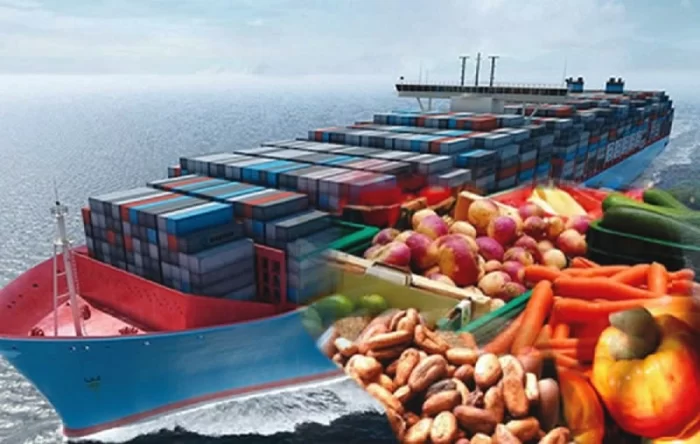Doing things right and properly always offer benefits, and so, while African countries like Ghana, Cameroon, Mali and so many others are benefiting from agricultural export, Nigeria is missing in action.

The non-certification of farm produce such as yam, mangoes, shrimps, garlic, ginger and others for export from Nigeria has continued to lead to loss of revenue for nation.
Ghana in 2021 generated about GH¢50 billion worth of farm produce like plantain, mangoes, yam among others.
Also Read: RT200: CBN Pays N81bn Rebate To Eligible Non-oil Exporters
Meeting the conditions for Good Agricultural Products (GAP) certification of the European Union, UK and some US states is sacrosanct for your produce to land on their tables.
Exporting West African countries must also meet the Sanitary Certification and Good Agricultural Sector Certification of many EU countries and other Western markets.
Nigeria is yet to be certified by these countries.
This has affected the volume of farm produce exported from Nigeria.
This is serous to the extent that Nigerian produce cannot be sold at the superstores of the UK and other parts of Europe.
Nigeria exports small volume of farm produce that are consumed largely by Nigerians living overseas.
Unfortunately, the country is yet to benefit from the markets high demand for African farm produce in Western nations.
Though, Nigeria has more farm produce to export than many of its neighbours, the non-certifications barrier is leading to loss of huge revenue in foreign exchange.
That revenue loss is projected to be over $1 billion per annum.
Nigeria’s farm produce includes ginger, palm kernel, palm oil, cocoa butter, sesame seed, honey, shrimps, garlic and others.
Lack Of Proper Process
The president of the Association of Foreign Airlines and Representatives in Nigeria (AFRAN), Kingsley Nwokoma, said: “Most of the superstores in Europe now sell African farm produce but before they will buy your produce they must be sure you meet their safety conditions.
“We have what they call traceability. They follow you to your farm and make sure you abide by the stringent conditions to ensure that what you produce meet their health standard.
You May Also Read: Stakeholders, FCMB Committed To Stimulate, Diversify Economy Through Export Trade
“This is because if anyone comes to their stores and buys those produce and get killed they will be sued and they pay huge compensations. So the food is traced to the farms.
“The superstores know the fertiliser you must use and they will follow you up to harvest. Unfortunately, we lack this process”.
Nwokoma lamented the fact that in Nigeria, farmers, harvesters and those packaging for export do not follow the proper procedure.
According to him, this situation is leading to a heavy loss in foreign exchange revenue.
Furthermore, he made a request from the Federal Government.
The government should do the needful so that Nigeria’s participation in the agricultural value chain, can be effective.
Also he called for adequate implementation of government policies, especially in the agricultural sector.

